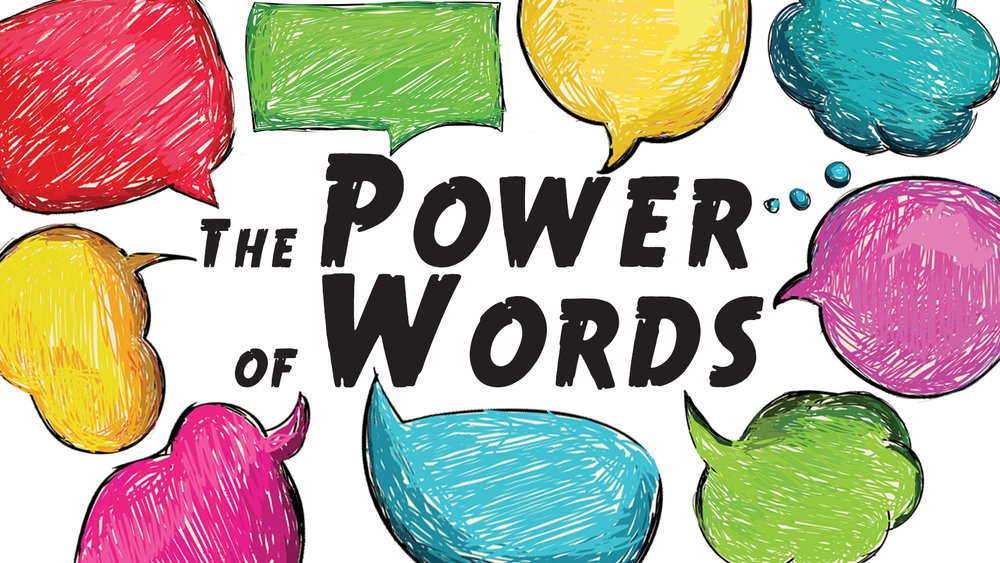
Words carry lot of weight because they can soothe someone or hurt someone. The words we write or speak to others usually leave a huge impact on them, therefore, choosing the right words to communicate is important. Another point to note is using words wisely because words can make or break a relationship and choice of words can impress or depress listeners. Wisely used words define the person’s attitude and character both.
It is important to choose just the right words to get your point across, but it is not always an easy task. There are two types of meanings for words: denotation and connotation. Denotation of a word is the expression of the word as clear and explicit as possible. It is direct meaning from the dictionary. The word connotation is commonly used in the phrase’s positive connotation and negative connotation. A connotation is a commonly understood cultural or emotional association that any given word or phrase carries. For example, ‘childlike’ is a positive connotation but ‘childish’ is negative connotation. The connotations for the word snake could be evil or dangerous. Denotation is when you mean what you say, literally snake is a reptile creature. The positive connotation of the word steadfast is unwavering but negative is stubborn. The denotation of the word steadfast is loyal and faithful.
BP (British Petroleum Company) caused the legendary oil spill that stretched across the Gulf of Mexico in 2010. Their PR strategy included airing a number of expensive commercials and apologizing at every chance they got–something the public found dishonest. Ultimately, they received criticism from President Obama and others, who said the money they put into the ads should have been put into cleaning up the mess. Tony Hayward – the former Chief Executive of BP also made the fatal mistake of saying he wanted his life back, which showed an obvious lack of respect for those 11 men who had actually lost their lives in the explosion.
Choice of words in communication can change the course of decision making in life. The vocabulary used must express feeling wisely without hurting the opposite person. Often, we see when a person is using an incorrect word, the message delivered is not meant. Unfitting choice of words leads to the misunderstanding among the audience. It sometimes makes a situation awkward and unclear. And, an incorrect word makes no sense.
Shashi Tharoor – a former Indian diplomat whose flawless English needs no introduction. Tharoor wrote ‘innivation’ in a Tweet instead of innovation while referring to his address at the MES College of Engineering, Kerala. Later he corrected it on tweeter stating that should have been “Innovation” or better still, “Indovation”! The meaning of the word Indovation is the process by which innovations are developed in India to serve a large number of people affordably and sustainably in response to conditions.
Choice of words is affected by the level of constraint imposed on users and is subjected to a number of factors, such as vocabulary or inappropriate use of command, situation, personality of persons presents etc. It attempts to affect how people think, instead of what they think by using subtle, indirect methods.
Human communication is a social interaction process. It is an essential part of our daily life. It is a process of creating, exchanging, sharing ideas, facts, feelings, etc. General Motors made a simple but disastrous mistake when they tried to introduce the Nova in Latin America? They thought they could use the same brand name they used in the United States. They couldn’t figure out why no one wanted it until they learned that it translated in Spanish as ‘No-go.’
Sometimes, a word that’s correct isn’t necessarily the right word to use. Which word would you prefer using ‘I dislike tea’ and ‘I hate tea’ They both communicate the same meaning, but the second sentence uses a much stronger word to communicate that feeling. Whether “dislike” or “hate” is the better word choice depends on the context surrounding the sentence.
I conclude: when it comes to picking the right word, the simplest is often best. Words not only convey information; they also reflect who you are – your values and beliefs. So, be mindful about your words.













































